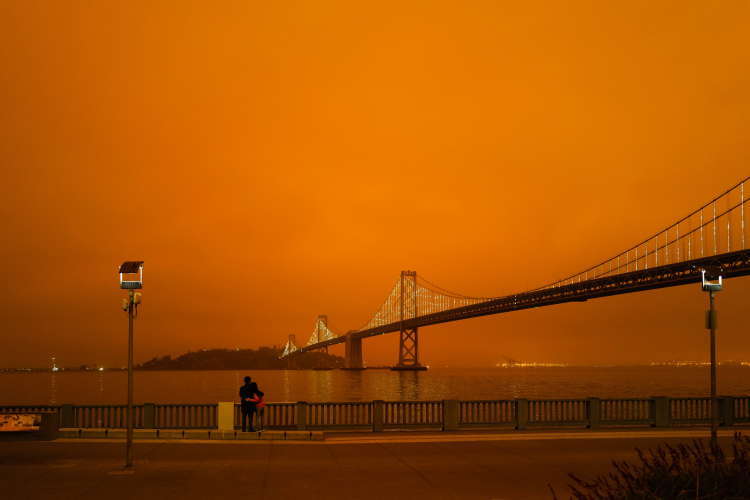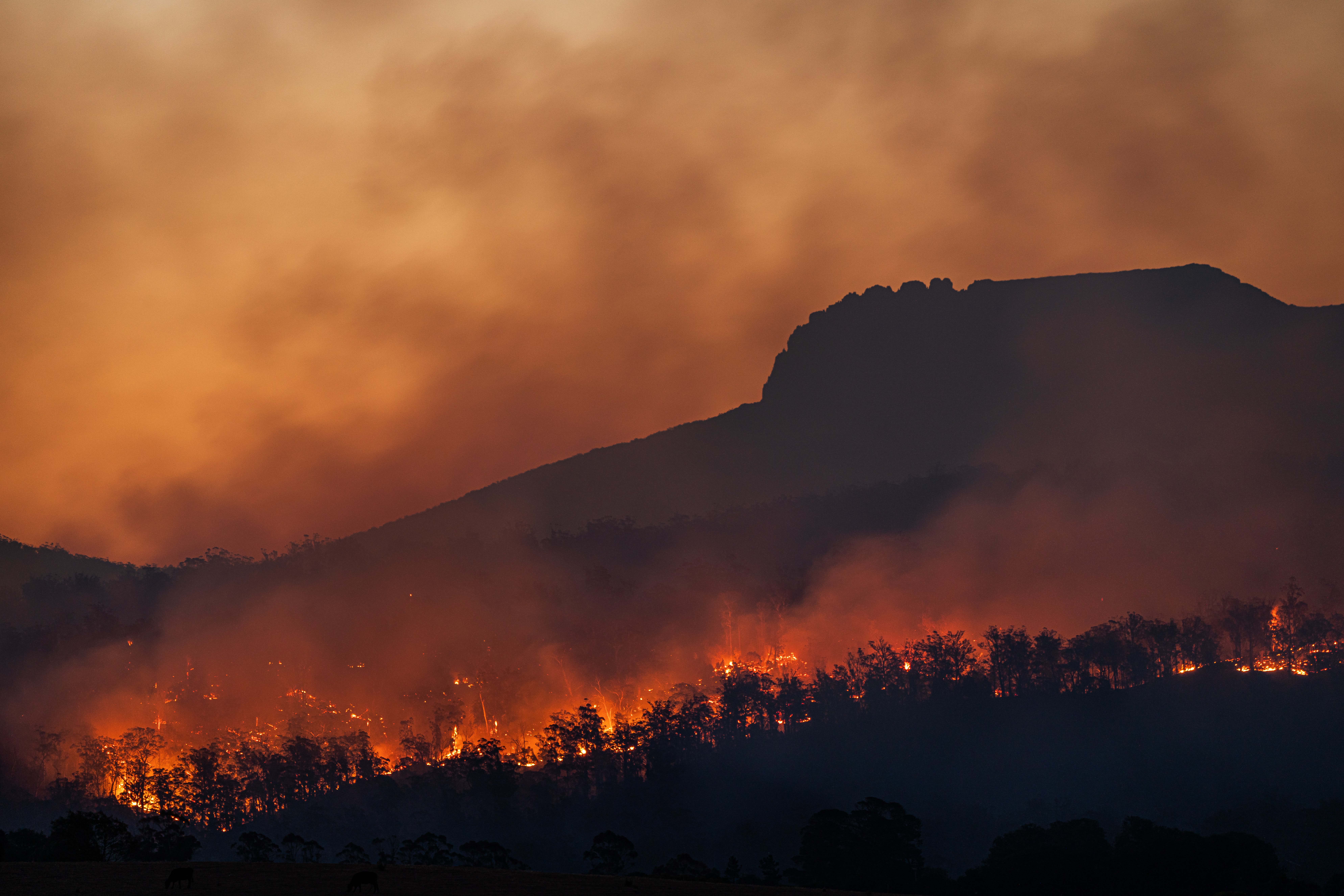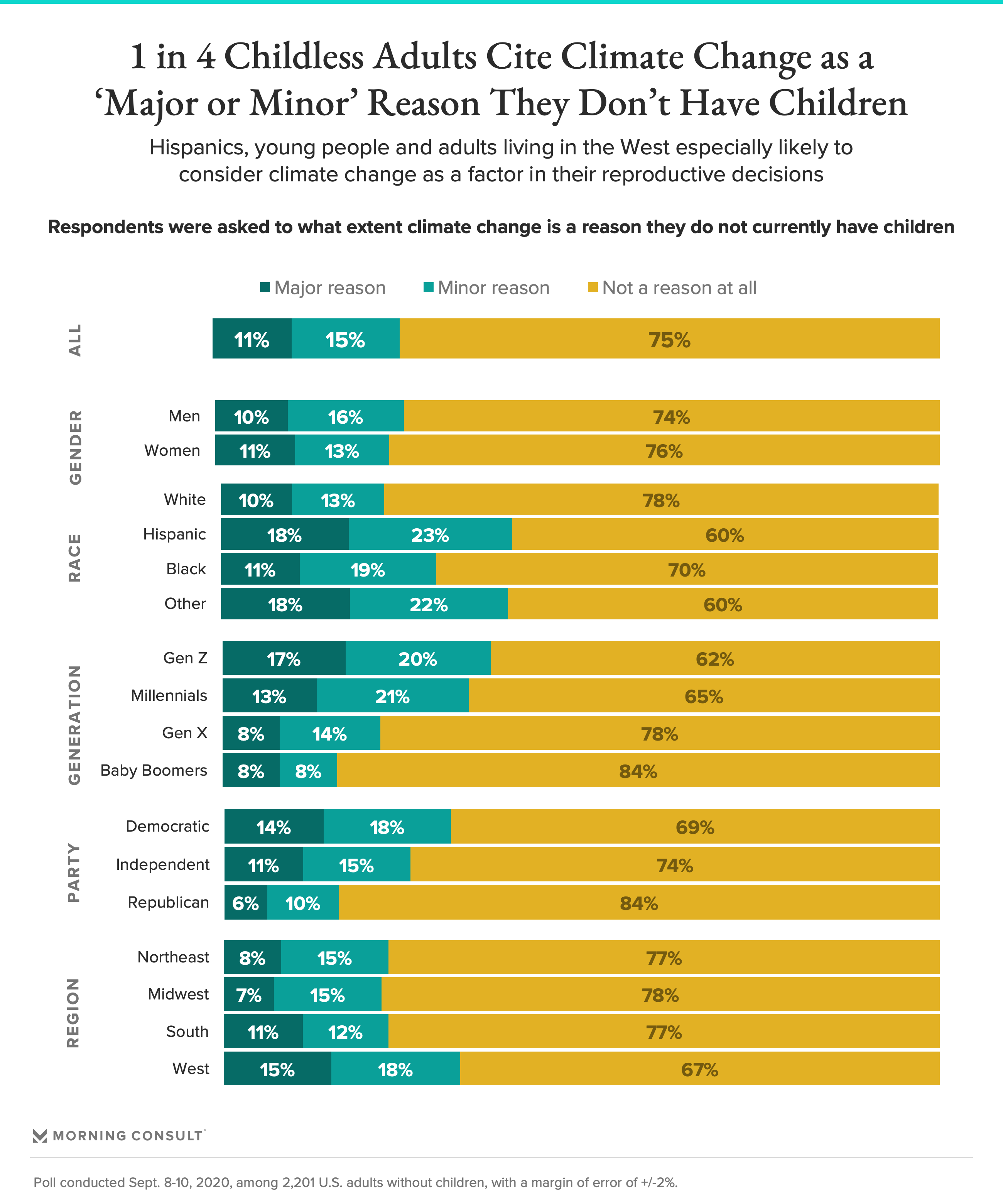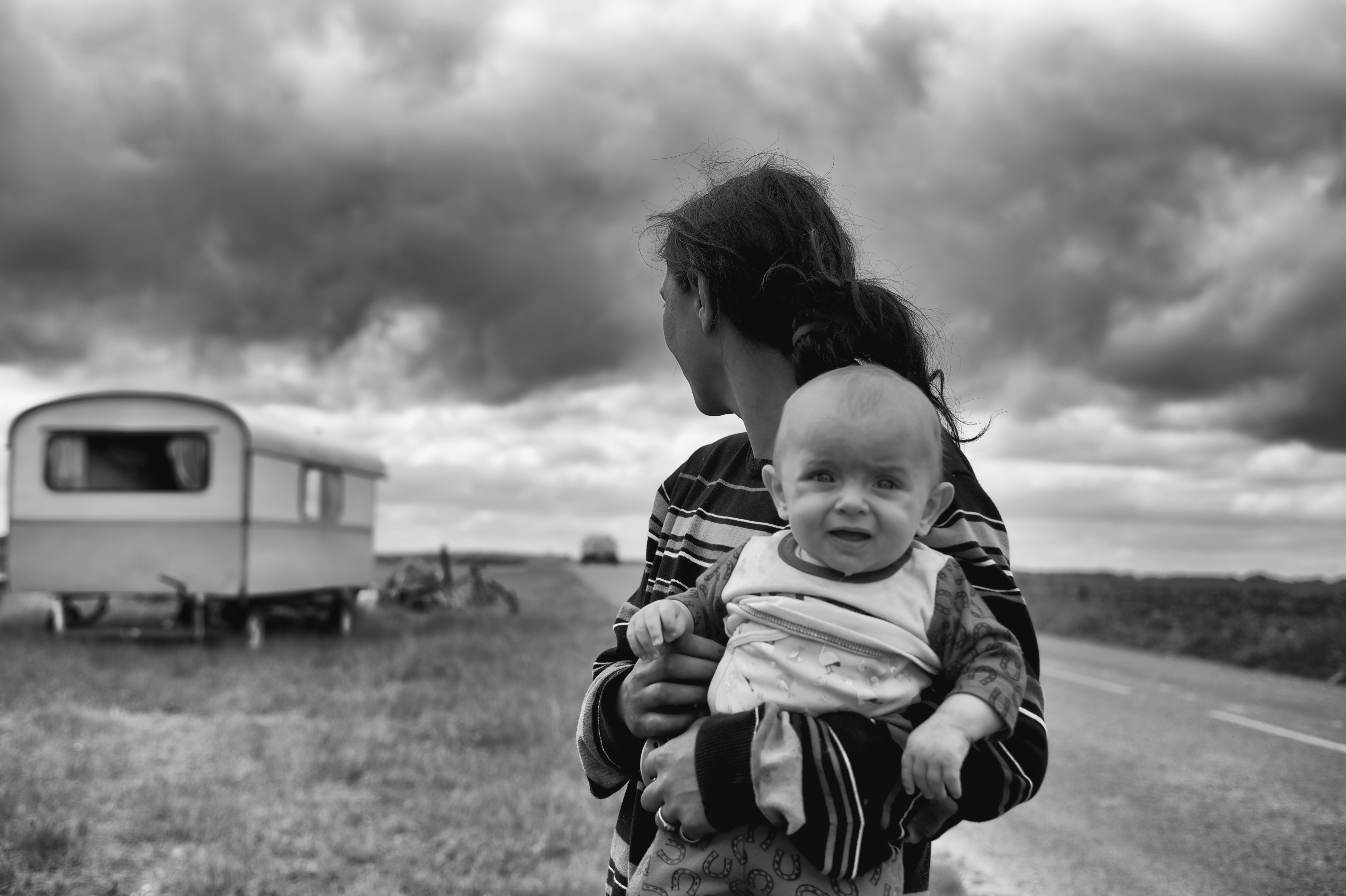Is Climate Anxiety Affecting Family Planning?

When I was still living in Berkeley, California, I remember waking up one morning and feeling like something was off. There was a stillness and a silence unusual for the busy streets around my apartment.
Like every morning, I rolled out of bed, walked over to the window, and threw open the curtains. I loved the way the California sunshine came streaming into my apartment, lighting every corner with its warm golden glow. Except, on this morning that didn’t happen.
As I looked outside, it took my brain a minute to comprehend what I was seeing: a completely orange sky alien in its strangeness. After weeks of wildfires raging throughout the state, I was finally experiencing the effects for myself. Staring at the sky, I noticed a burning smell filling my nostrils. I was contemplating a scene that felt apocalyptic.
Heading into work under a Mars-like sky, everyone around me had the same dazed expression. A note of concern crept into every conversation, jokes about the end of the world and zombie apocalypses. One of the most memorable conversations I had that day was with a colleague anxious about the future his two-year-old twins would inherit. He was worried about them growing up in a California with more smoky days than sunny ones, making it difficult to enjoy its familiar rugged, beautiful nature.
Photo by Matt Palmer on Unsplash
For the first time, we were feeling the impact of climate change close up. Until then, wildfires were something that happened in faraway mountains miles away from the Bay Area, a city used to dense fog, not wildfire smoke choking your lungs. But, as these effects become more widespread, my colleague is not the only parent, current or potential, worrying about how climate change will impact future generations.
Research shows that, as more people are exposed to increasingly common extreme weather events fueled by climate change, young adults are questioning whether to have children. A recent Morning Consult poll showed that 11 percent of childless adults said that climate change is a "major reason" they do not have children, with 15 percent saying it plays at least a minor role. For some, the fear is about making climate change worse by adding another human being to the planet. For others, they fear "that their offspring would have to struggle through a climate apocalypse." In an interview with CNBC, a woman named Jessica Combes put it bluntly, saying, "I refuse to bring children into the burning hellscape we call a planet."
Image by Morning Consult
While statements like that seem extreme, these are not irrational or baseless fears. According to a new study from the journal Science, children born in 2020 will deal with extreme climate events "at a rate that is two to seven times higher" than those born in 1960. That means more cyclones, more wildfires, flooding, crop failure, and drought. Of all the threats faced by future generations, heatwaves will occur at a rate 36 times higher than for those born sixty years ago. It is important to note that these impacts will not be shared equally with individuals who have contributed least to climate change bearing the brunt of these extreme events.
Of course, these numbers are concerning in their implications for the babies being born today. But, perhaps more immediately, they are also raising some important questions for young adults trying to make decisions about a future that seems uncertain and scary. In interviews with 10,000 young people ages 16-25 living in ten different countries, two-thirds of respondents feel anxious and afraid about the future, with eight in ten saying "the future is frightening." The survey also showed that four in ten felt hesitant to have children because of their climate anxiety.
Photo by Johann Walter-Bantz on Unsplash
This growing movement not to have children because of fears over climate change is picking up momentum with more adults considering its adverse effects in their decision to have, or not have, children. Analysts at Morgan Stanley say that this trend is "impacting fertility rates quicker than any preceding trend in the field of fertility decline." Importantly, not everyone has the privilege to choose whether or not to have children which raises questions about how this will exacerbate the already present effects of climate injustice.
The decision to have a child is profoundly personal, and evidence shows that the climate crisis is beyond the point where an individual choice will alleviate the future impacts of extreme climate events. Yet, beyond the question of systemic change versus a personal decision, there is the deeply emotional, complicated conversation around whether or not someone wants to bring a child into a world that will, in all likelihood, be very different from the one in which they grew up.
Since my conversation with my colleague, I have been asking myself the same question that thousands of other young adults are considering. Everyone's decision to have a child — or not — is based on many factors. Some are starting to factor in climate change, myself included. When you see the sky turn orange, floods wipe out a bustling town, or a hurricane bring a city to its knees, it's rational to wonder what the future might hold for those born into it.










